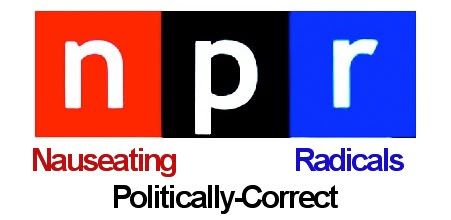Juan Williams: Going Rogue
by Sarah Palin on Thursday, October 21, 2010 at 10:45am
At a time when our country is dangerously in debt and looking for areas of federal spending to cut, I think we’ve found a good candidate for defunding. National Public Radio is a public institution that directly or indirectly exists because the taxpayers fund it. And what do we, the taxpayers, get for this? We get to witness Juan Williams being fired from NPR for merely speaking frankly about the very real threat this country faces from radical Islam.
We have to have an honest discussion about the jihadist threat. Are we not allowed to say that Muslim terrorists have killed thousands of Americans and continue to plot the deaths of thousands more? Are we not allowed to say that there are Muslim states that aid and abet these fanatics? Are we not allowed to even debate the role that radical Islam plays in inciting this violence?
I don’t expect Juan Williams to support me (he’s said some tough things about me in the past) – but I will always support his right and the right of all Americans to speak honestly about the threats this country faces. And for Juan, speaking honestly about these issues isn’t just his right, it’s his job. Up until yesterday, he was doing that job at NPR. Firing him is their loss.
If NPR is unable to tolerate an honest debate about an issue as important as Islamic terrorism, then it’s time for “National Public Radio” to become “National Private Radio.” It’s time for Congress to defund this organization.
NPR says its mission is “to create a more informed public,” but by stifling debate on these issues, NPR is doing exactly the opposite. President Obama should make clear his commitment to free and honest discussion of the jihadist threat in our public debates – and Congress should make clear that unless NPR provides that public service, not one more dime.
Mr. President, what say you?
- Sarah Palin

by Sarah Palin on Thursday, October 21, 2010 at 10:45am
At a time when our country is dangerously in debt and looking for areas of federal spending to cut, I think we’ve found a good candidate for defunding. National Public Radio is a public institution that directly or indirectly exists because the taxpayers fund it. And what do we, the taxpayers, get for this? We get to witness Juan Williams being fired from NPR for merely speaking frankly about the very real threat this country faces from radical Islam.
We have to have an honest discussion about the jihadist threat. Are we not allowed to say that Muslim terrorists have killed thousands of Americans and continue to plot the deaths of thousands more? Are we not allowed to say that there are Muslim states that aid and abet these fanatics? Are we not allowed to even debate the role that radical Islam plays in inciting this violence?
I don’t expect Juan Williams to support me (he’s said some tough things about me in the past) – but I will always support his right and the right of all Americans to speak honestly about the threats this country faces. And for Juan, speaking honestly about these issues isn’t just his right, it’s his job. Up until yesterday, he was doing that job at NPR. Firing him is their loss.
If NPR is unable to tolerate an honest debate about an issue as important as Islamic terrorism, then it’s time for “National Public Radio” to become “National Private Radio.” It’s time for Congress to defund this organization.
NPR says its mission is “to create a more informed public,” but by stifling debate on these issues, NPR is doing exactly the opposite. President Obama should make clear his commitment to free and honest discussion of the jihadist threat in our public debates – and Congress should make clear that unless NPR provides that public service, not one more dime.
Mr. President, what say you?
- Sarah Palin





